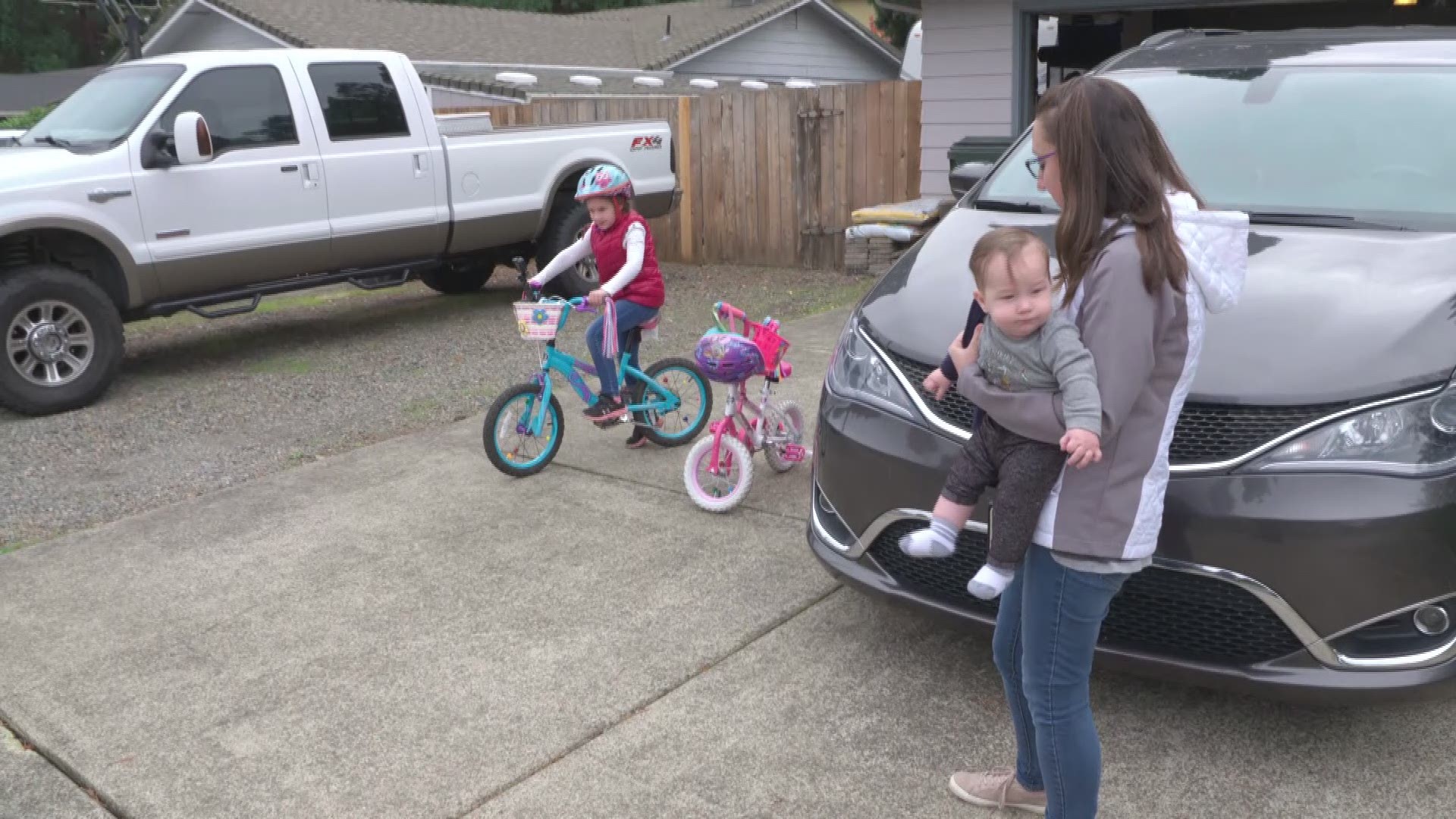PORTLAND, Ore. — Alyssa Parks doesn’t own a grocery store, even though the U.S. government thinks so. In July, the Small Business Administration (SBA) paid $44,900 to provide critical disaster relief for a fictitious grocery store.
Fraudsters listed Parks as the business owner on the SBA loan application and her home address as the grocery store location.
“I’ve never owned a business before. I’ve never been part of any small business,” said Parks, a wife and mother of three young children. “I’ve never applied for any sort of business loan.”
Parks is one of countless Americans saddled with bogus debts after the government handed out potentially billions of dollars in fraudulent COVID-19 relief. She’s struggled to get answers from the SBA and fears the bogus loan could have a lasting effect on her family’s financial record.
“If this loan starts coming due, I’m either going to have to pay on it or let it hit my credit,” said Parks. “I’m struggling with that.”
In September, Parks got an unexpected letter from the Small Business Administration which said she could start making payment on her $44,900 COVID disaster loan.
Parks didn’t know if the letter was a hoax or a scam. After several attempts to reach someone at the SBA, Parks learned fraudsters had used her personal information to submit a bogus COVID-19 Economic Injury Disaster Loan application.
She still doesn’t know how the identity thieves got her sensitive information.
So how did fraudsters take advantage of the system?
Last spring, the U.S. government scrambled to help businesses survive as the coronavirus pandemic started to cripple the economy.
To get money out quickly, the SBA loosened its normal fraud safeguards. All it took to get a COVID-19 Economic Injury Disaster Loan was an online application.
The fraudsters caught on fast, sharing tips on social media how to steal from the disaster loan program.
Inside the SBA, loan officers grew accustomed to seeing bogus applications.
“I would report a dozen out of maybe 80 applications a day as suspected fraud,” said Nicolas Croce, who worked remotely as an SBA loan officer for about seven weeks.
Croce said fraudsters used bogus email accounts, burner phone numbers and relied on banks that typically don’t share information with others.
“I understand that the government wanted to get this money out as quickly as possible, but it also went out to a lot of people who shouldn’t have gotten it,” said Croce, who reported the fraud to superiors.
In an October report, the agency’s inspector general found the government had approved billions of dollars in potentially fraudulent loans after the "SBA ‘lowered the guardrails’ or relaxed internal controls, which significantly increased the risk of program fraud."
Parks felt the red flags should have been obvious on her application. The money was transferred to a bank, with no physical branches in Oregon. The Oregon woman claimed a simple check on Google maps would have indicated her home is not a grocery store.
“The SBA works diligently to mitigate fraudulent use of its programs and services,” wrote Melanie Norton, spokesperson for the SBA in an email to KGW. Norton explained if fraud is suspected, it should be reported.
Parks said she has reported the case to the SBA repeatedly.
“They just keep saying you have to wait for our fraud department to call you. And when I ask them how long that is going to take? It is kind of funny -- their response, 'Oh, I don’t know because there is just so much fraud going on,'” explained Parks.
With three kids and a busy household, Parks already has plenty going on. Now, she’s stuck trying to clean up the government’s mess and restore her family’s financial record.

